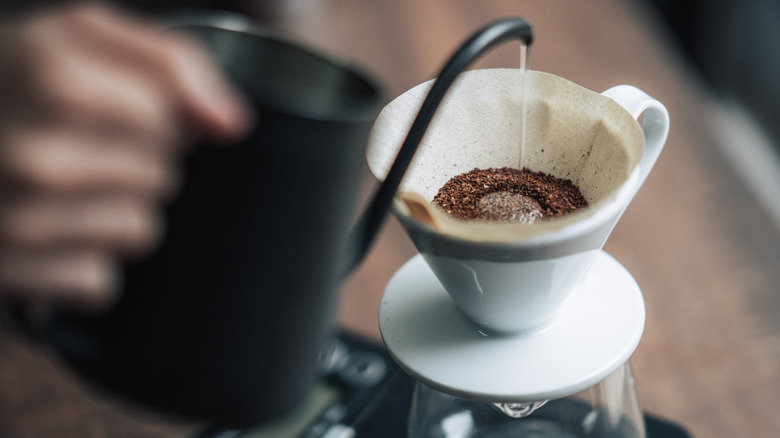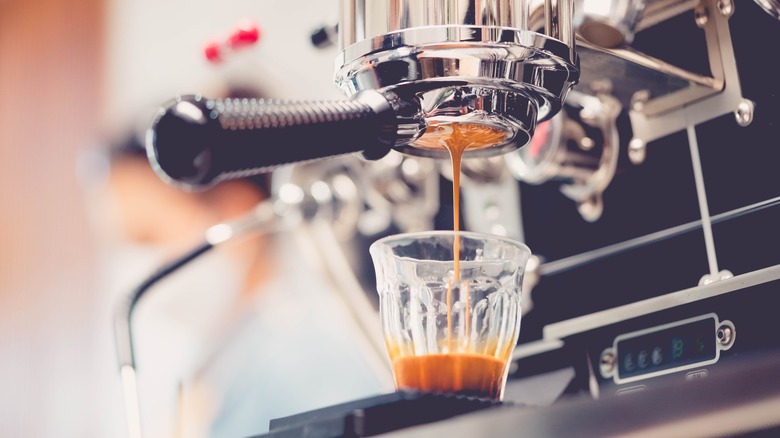What's The Difference Between Coffee And Espresso?
Millions of people will tell you that their day doesn't officially start until they've had their coffee. The phrase "don't talk to me until I've had my coffee" has inspired countless memes — like a McDonald's commercial and an entire section on Etsy, to name a few. And because we're human and contain multitudes, there are just as many ways for us to enjoy a cup of coffee as there are people who drink it.
Of course, we'd be remiss not to invoke the classic Tom Hanks voiceover from Nora Ephron's "You've Got Mail." In that classic Ephron monologue, Hanks' character, Joe Fox, lists the endless variety of ways in which Starbucks customers doctor up their cup of joe — a futile attempt to assert agency over their own lives, per Fox's estimation. "Short, tall, light, dark, caff, decaf, low-fat, non-fat," he gripes. Of all those categories, there's one very contentious distinction — coffee versus espresso. So, let's pour one out for Joe: Here's how they're different.
When it comes to coffee and espresso, it's all about preparation
Contrary to what your local grocery store might lead you to believe, there's technically no difference between coffee beans and espresso beans. However, the two forms of liquid morning juice are not one and the same. As Smithsonian points out, espresso actually comes from what we call "coffee" — or rather, the bean coffee comes from. The difference between the two all boils down to methodology.
If you've ever had true espresso, you'll have been able to tell immediately that it's not the same as your average drip. The drink comes out of the machine looking more like a flat foam or watered-down caramel, rather than the watery consistency of coffee. According to Smithsonian magazine, that's because " highly-pressurized hot water is forced over [fine] coffee grounds to produce a very concentrated coffee drink with a deep, robust flavor," which concentrates the beverage's taste and caffeine prowess. Coffee, on the other hand, is thinner, less concentrated, and typically brewed with coarser beans. Therefore, you could think of it like this: Espresso is technically coffee, but coffee is technically not espresso.

